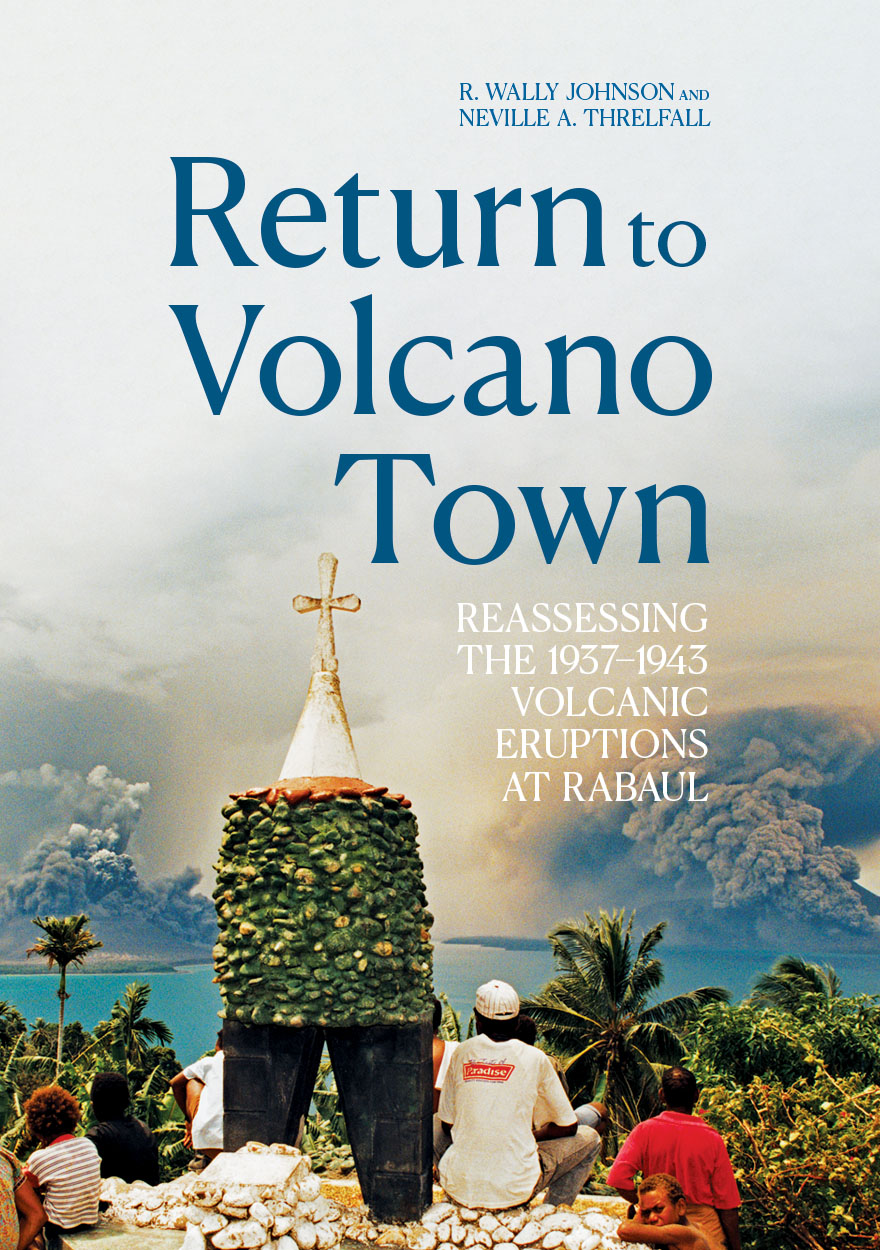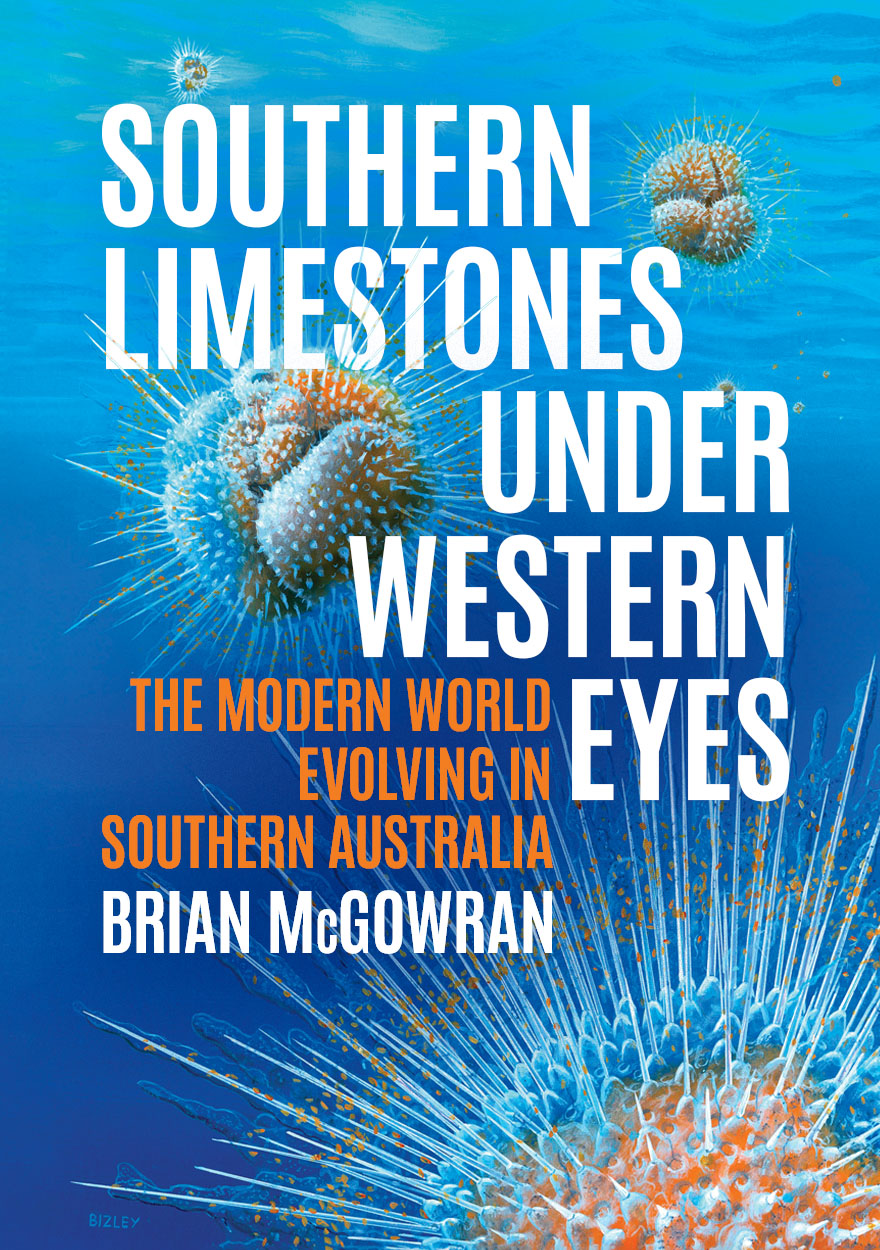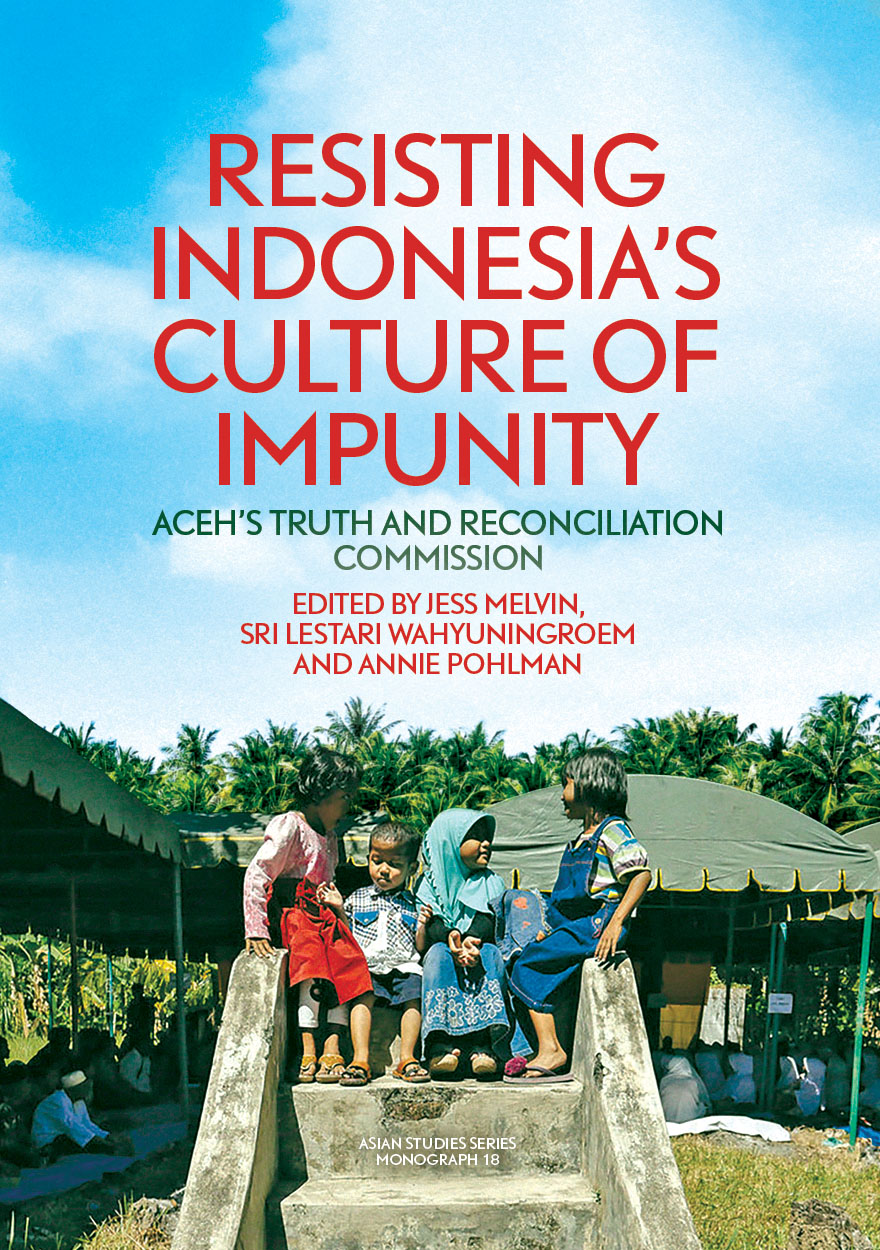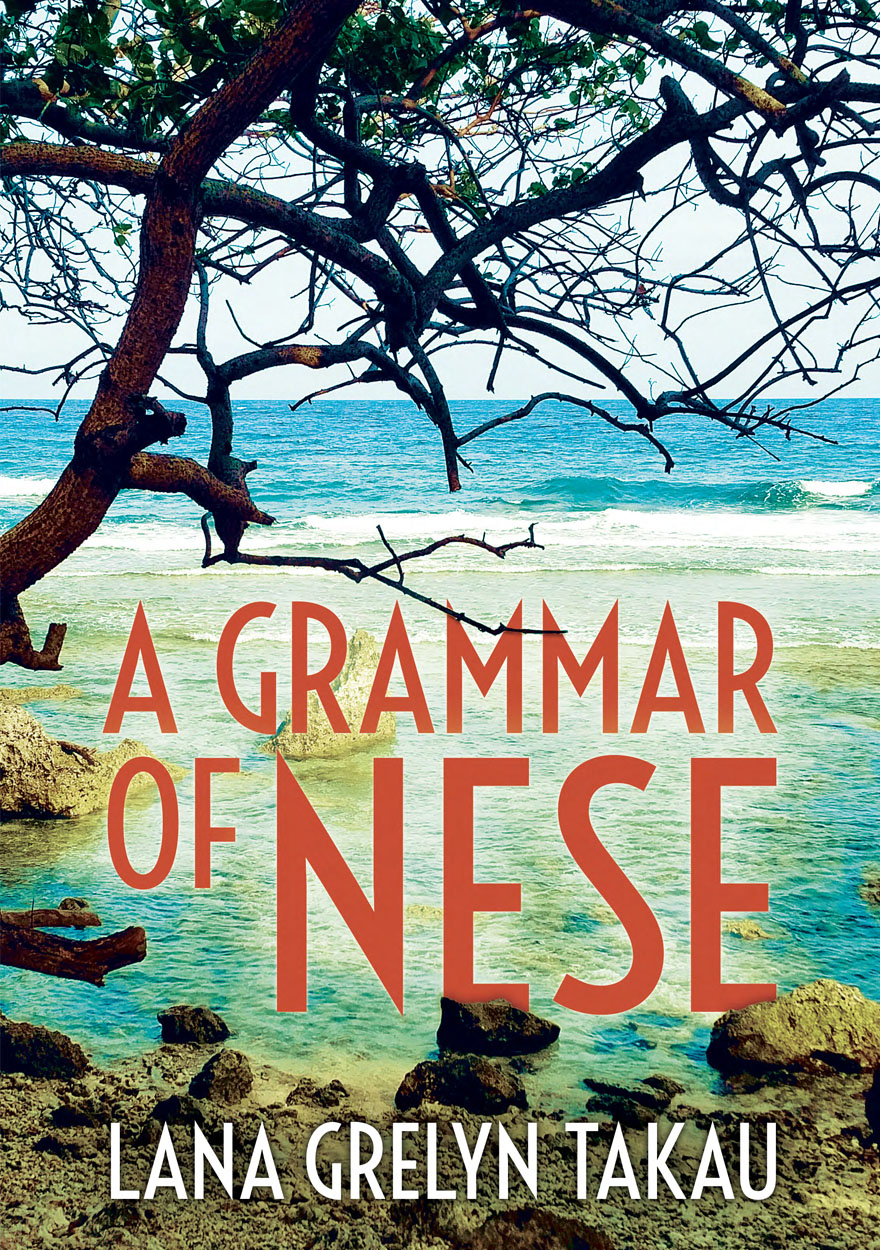Search titles
Displaying results 101 to 110 of 1158.

Return to Volcano Town »
Reassessing the 1937–1943 Volcanic Eruptions at Rabaul
Authored by: R. Wally Johnson, Neville A. Threlfall
Publication date: October 2023
Wally Johnson and Neville Threlfall re-examine the explosive volcanic eruptions that in 1937–43 killed more than 500 people in the Rabaul area of East New Britain, Papua New Guinea. They reassess this disaster in light of the prodigious amount of new scientific and disaster-management work that has been undertaken there since about 1971, when strong tectonic earthquakes shook the area. Comparisons are made in particular with volcanic eruptions in 1994–2014, when half of Rabaul town was destroyed and then abandoned.
A striking feature of historical eruptive periods at Rabaul is the near‑simultaneous activity at Vulcan and Tavurvur volcanoes, on either side of Rabaul Harbour. Such rare ‘twin’ eruptions are interpreted to be the result of a common magma reservoir beneath the harbour. This interpretation has implications for ongoing hazard and risk assessments and for volcano monitoring in the area.

A Young Englishman in Victorian Hong Kong »
The Diaries of Chaloner Alabaster, 1855–1856
Authored by: Benjamin Penny
Publication date: October 2023
In August 1855, 16-year-old Chaloner Alabaster left England for Hong Kong, to take up a position as a student interpreter in the China Consular Service. He would stay for almost 40 years, climbing the rungs of the service and eventually becoming consul-general of Canton. When he retired he returned to England and received a knighthood. He died in 1898. Throughout his adult life, Alabaster kept diaries.
In the first four volumes of these diaries, collected here by Benjamin Penny, the teenage Alabaster recorded his thoughts and observations, told himself anecdotes, and exploded in outbursts of anger and frustration. He was young and enthusiastic, and the everyday sights, sounds and smells of Hong Kong were novel to him. He describes how the Chinese people around him ironed clothes, dried flour and threshed rice; how they gambled, prepared their food and made bean curd; and what opera, new year festivities and the birthday of the Heavenly Empress were like. Like many a young Victorian, he was also a keen observer of natural history, fascinated by fireflies and ants, corals and sea slugs, and the volcanic origins of the landscape.
Alabaster’s diaries are a unique, vibrant and riveting record of life in the young British colony on the cusp of the Second Opium War. With A Young Englishman in Victorian Hong Kong, Penny sheds new light on the history of the region.

Southern Limestones under Western Eyes »
The Modern World Evolving in Southern Australia
Authored by: Brian McGowran
Publication date: September 2023
Science, the growth of reliable knowledge, became a major triumph of the European Enlightenment in the seventeenth century, under the guise of ‘natural philosophy’: investigating what the earth and universe are made of and how things work. It took another century for the parallel subject ‘natural history’ to glimpse how the earth, its geography and its richly diverse life came to be. Later, geology and biology became intertwined as biogeohistory—an ever-changing environmental theatre hosting an ever-changing evolutionary play.
This environmental theatre has shifted with the making and breaking of supercontinents, the birth and death of global oceans, and the rise and fall of global hothouses and ice ages. The evolutionary play begins with biostratigraphy, wherein fossils revealed deep time and ancient environments and built the first meaningful geological timescale, and ends with the still young science of palaeoceanography—central to which are microfossils, rich in information about the oceans and climates of the past.
In Southern Limestones under Western Eyes, Brian McGowran recounts the history of biogeohistory itself: the ever-changing perceptions of rocks, fossils and landscapes, from the late 1600s to the present. McGowran’s focus is southern Australia, the north shore of the dying Australo-Antarctic Gulf, in an era bracketed by two catastrophes: the extinction of dinosaurs and the emergence of humans.

East Asia Forum Quarterly: Volume 15, Number 3, 2023 »
Publication date: September 2023
As ASEAN and Japan celebrate the 50th anniversary of their official relationship, the challenge to redefine the goals and purpose of this relationship is now pressing. Great power rivalry, regional power relativities, and sweeping political and economic disruption have injected new dynamics and exposed serious vulnerabilities. With ASEAN member states and Japan each facing their own domestic challenges, the opportunity presents itself for a more 'equal' partnership that is able to 'co-create' a regional economy and society, from paternalistic origins. This issue of East Asia Forum Quarterly addresses these challenges for the ASEAN–Japan relationship and offers ideas, vision and initiatives that might guide its future: exploring the policy options for a relationship challenged by regional economic fragmentation; detailing the lessons available for policymakers beginning to act on sustainability and digital and green transformation; and examining the opportunities taken and thus far unrealised for the fashioning of new soft diplomacy and investment in intra-ASEAN infrastructure.
Download for free
Not available for purchase

Resisting Indonesia’s Culture of Impunity »
Aceh’s Truth and Reconciliation Commission
Publication date: August 2023
Resisting Indonesia’s Culture of Impunity examines the role of Indonesia’s first truth and reconciliation commission—the Aceh Truth and Reconciliation Commission, or KKR Aceh—in investigating and redressing the extensive human rights violations committed during three decades of brutal separatist conflict (1976–2005) in the province of Aceh.
The KKR Aceh was founded in late 2016, as a product of the 2005 peace deal between the Indonesian government and the Free Aceh Movement (GAM). It has since faced many challenges—not least from Indonesia’s security forces and former GAM leaders, who have joined together in their determination to maintain impunity for their respective roles in the conflict. Indeed, the commission would not have been established without the tireless work of civil society actors, including non-government organisations and other humanitarian groups.
In Resisting Indonesia’s Culture of Impunity, the editors set out to amplify the role of these civil society actors in the KKR Aceh and in transitional justice in Indonesia. Each chapter has been written by a team of authors, composed predominantly of commissioners and staff from the KKR Aceh itself, members of key civil society organisations, and academics. Further, the editors aim to scrutinise the KKR Aceh from the inside and analyse the establishment and operation of what is perhaps the only genuine state-sponsored attempt to implement transitional justice in Indonesia today.

Subjects and Aliens »
Histories of Nationality, Law and Belonging in Australia and New Zealand
Edited by: Kate Bagnall, Peter Prince
Publication date: August 2023
Subjects and Aliens confronts the problematic history of belonging in Australia and New Zealand. In both countries, race has often been more important than the law in determining who is considered ‘one of us’.
Each chapter in the collection highlights the lived experiences of people who negotiated laws and policies relating to nationality and citizenship rights in twentieth-century Australasia, including Chinese Australians enlisting during the First World War, Dalmatian gum-diggers turned farmers in New Zealand, Indians in 1920s Australia arguing for their citizenship rights, and Australian women who lost their nationality after marrying non-British subjects.
The book also considers how the legal belonging—and accompanying rights and protections—of First Nations people has been denied, despite the High Court of Australia’s recent assertion (in the landmark Love & Thoms case of 2020) that Aboriginal people have never been considered ‘aliens’ or ‘foreigners’ since 1788. The experiences of world-famous artist Albert Namatjira, and of those made to apply for ‘certificates of citizenship’ under Western Australian law, suggest otherwise.
Subjects and Aliens demonstrates how people who legally belonged were denied rights and protections as citizens through the actions of those who created, administered and interpreted the law across the twentieth century, and how the legal ramifications of those actions can still be felt today.

The Compleat Busoni, Volume 1 »
Busoni and the piano: The works, the writings, and the recordings
Authored by: Larry Sitsky
Publication date: August 2023
VOLUME 1: Busoni and the piano: The works, the writings, and the recordings.
Larry Sitsky, professor emeritus at The Australian National University, is an internationally known composer, pianist, scholar, and teacher. His books are fundamental reference works on subjects such as Australian piano music, the 20th-century avant-garde, the piano music of Anton Rubinstein, the early 20th-century Russian avant-garde, and the classical reproducing piano roll.
The Compleat Busoni is the result of Sitsky’s lifelong focus on the composer Ferruccio Busoni. Over three volumes, Sitsky surveys Busoni’s vast output, provides an ending to the unfinished opera Dr. Faust, and presents definitive realisations of the Fantasia Contrappuntistica in two-piano and orchestral versions. New insights into Busoni’s style and aesthetics are an integral aspect of this work.
Format: Hardback

A Grammar of Nese »
Authored by: Lana Grelyn Takau
Publication date: August 2023
Nese is a dying Oceanic language spoken on the island of Malekula, in northern Vanuatu. This book, based on first-hand fieldwork data, and without adhering to any particular syntactic framework, presents a synchronic grammatical description of Nese’s phonology and syntax. Despite being on the verge of extinction, with fewer than 20 living speakers, the language displays intriguing properties—including but not exclusive to the cross-linguistically rare apicolabial phonemes, interesting vowel-raising patterns in some word classes, and a discontinuous negation relationship that is obligatorily expressed with the irrealis mood marker. This book will probably be the last work published on Nese.

Watershed »
The 2022 Australian Federal Election
Publication date: August 2023
Australia’s 2022 federal election played out in ways that few could have expected. Not only did it bring a change of government; it also saw the lowest number of primary votes for the major parties and the election of the greatest number of Independents to the lower house since the formation of the Australian party system. The success of the Teal Independents and the Greens, along with the appetite voters showed for ‘doing politics differently’, suggested that the dominant model of electoral competition might no longer be the two-party system of Labor versus Liberal. At the very least, the continued usefulness of the two-party-preferred vote as a way of conceptualising and predicting Australians’ voting behaviour has been cast into serious doubt.
In Watershed, leading scholars analyse the election from the ground up—focusing on the campaign issues, the actors involved, and the successes and failures of campaign strategy—and show how digital media, visual politics and fake news are changing the way politics is done. Other topics include the impact of COVID-19 and the salience of climate, gender and integrity issues, as well as voting patterns and polling accuracy. This authoritative book is indispensable for understanding the disenchantment with the major parties, the rise of Community Independents, and the role of the Australian Greens and third parties.
Watershed is the eighteenth in the ANU Press federal election series and the tenth sponsored by the Academy of the Social Sciences in Australia.
‘The Australian election books have been appearing after each election since the 1987 election, and with ANU Press as publisher since 2010. As chair of the Social Sciences Editorial Committee, I am proud of this connection: it is a prestige publication … The rise of fact-free partisanship makes the kind of considered discussion being carried on here more significant than ever.’
– Frank Bongiorno, Launch speech for Watershed: The 2022 Australian Federal Election, 18 October 2023.

International Review of Environmental History: Volume 9, Issue 1, 2023 »
Edited by: James Beattie
Publication date: July 2023
Inspired by recent scholarship on disaster history and situated within the broader field of environmental history, this special issue highlights structural factors that have exacerbated the effects of extreme weather and explores how states and societies have responded and adapted (or not) during and after disasters. The five case studies all focus on the Indian Ocean World (IOW), a macro-region stretching from eastern Africa to East Asia and Southeast Asia, and align chronologically with the so-called Anthropocene, the period during which the industrial Global North began to leave its indelible imprint on the world’s climatic systems. They build on a small but growing scholarship that looks at historical disasters and disaster responses within the IOW, arguing collectively for the application of historical methodologies in approaching the challenge of extreme weather now and in the future.



